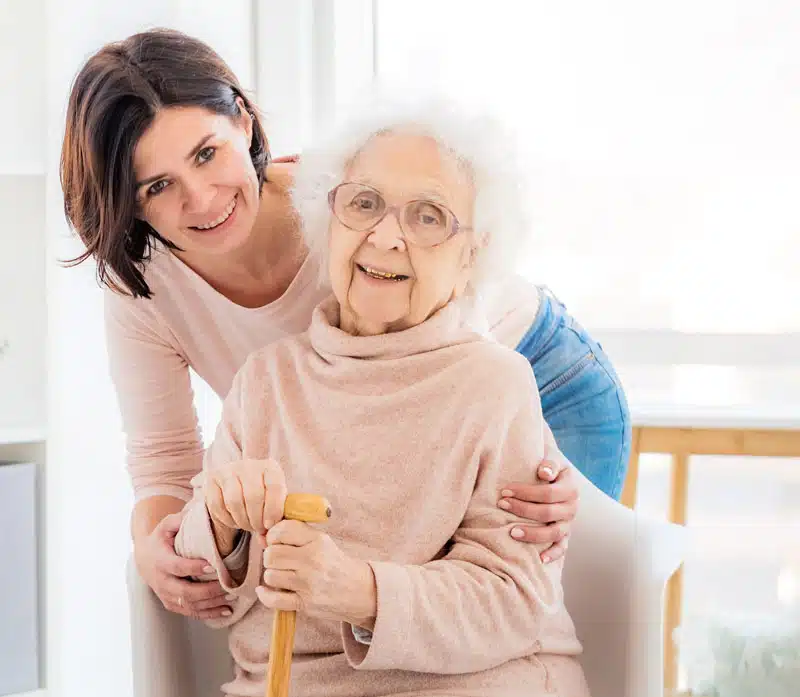
Caregiver problems
Many caregivers experience stress, putting their own health and well-being in jeopardy. If you provide care to someone in need, then you know that it’s common to keep the focus on others instead of taking time for yourself. This makes it hard to stop and recognize your own needs.
When people are relying on you, you may not think it’s as important to take a moment to assess your mental and physical health. But there’s quite a bit of truth to the advice that you need to “secure your own air mask” before assisting others.
Common signs of caregivers’ stress include feeling overwhelmed or constantly worried, losing sleep, overindulging in alcohol, chronic fatigue, and losing interest in things you once enjoyed. But struggling to get through the day won’t help the situation. Instead, it’s important for caregivers and those who employ them to be able to spot the signs of the common problems that caregivers often face.
These include:
· Managing time
Caring for someone in need requires not only time management but the ability to react to the unexpected. However, this often leads to caregivers failing to find time to care for themselves. Ideally, one should find time each day to make sure they are eating healthy and getting enough rest. It’s also important to take time to pursue your own interests outside of your responsibilities as a caregiver. Of course, this is particularly difficult if you are a live-in caregiver or related to the person you are assisting.

· Emotional stress
Caregivers are bound to feel emotionally stressed from time to time. But if you’re chronically overwhelmed, sad, worried, angry, or fatigued, it’s time to take action. It’s true what they say – stress kills. It affects our bodies in negative ways and can lead to both short- and long-term illnesses, from depression to heart disease.
· Physical stress
Those who spend long hours caring for someone may also feel physically exhausted. And that’s the case even if you aren’t helping someone with mobility issues. Physical stress can come in many forms, including headaches, body aches and pains, high blood pressure, gastrointestinal issues, higher rates of obesity, and diminished immune response.
· A lack of privacy
Caregivers may get very little time to themselves. If you live with and/or are related to the person you care for, it may be hard to create boundaries between your personal life and your caregiving. But it’s important to find the time and the space to be alone. A lack of privacy can lead to frustration, resentment, and can create tension with the patient or other family members.
· Financial strain
If a caregiving situation is informal or if a person is caring for a loved one, there’s a good chance they aren’t being fully compensated for all of their time. Part-time work often doesn’t come with benefits. And if you’re caring for a friend or parent, you may be expected to do this for free and even give up the job and salary you once had. It’s estimated that 44 million Americans provide unpaid assistance and support to the elderly and adults with disabilities.
· Sleep deprivation
The stresses of the day don’t simply drop off when you’re done providing care. And some patients may need care during the night or have emergencies that interrupt restful sleep for the caregiver. A lack of sleep leads to a vicious cycle in which even more emotional and physical stress can occur.
· Being afraid to ask for help
Caregivers often feel that it’s their job to put the focus on others and they hesitate to reach out to get help for their own issues. It’s common for people in this position to feel like asking for help is admitting that they’re not capable of caring for someone else.
· Feelings of depression and isolation
Higher levels of depression are common among caregivers and roughly one quarter to one half meet the diagnostic criteria for major depression. Co-existing disorders such as anxiety are common as well and can continue even after a patient is placed in a nursing home. Caregiver stress can also lead to the desire to isolate, which only worsens depression.
· Feeling guilty or constantly worried
When you take responsibility for the well-being of another person, it’s natural to feel a nagging sense of concern. You may worry about the patient, how your caregiving affects the rest of your family, and whether you’re doing a good enough job. And when you do take time to address your own issues, you may even feel a sense of guilt.

Caregiver Burnout
Caregiver burnout is a state of physical, emotional, and mental exhaustion that can occur when individuals are tasked with the long-term care of someone else, often a loved one. This state of burnout can significantly impact the caregiver’s well-being, manifesting in a variety of ways including lack of energy, overwhelming fatigue, sleep problems, changes in eating habits, and weight loss.
One of the key causes of caregiver burnout is the feeling of a lack of mastery or control, coupled with the perception of not having adequate skills or knowledge in providing care. Long-term stress from trying to meet the needs of the person being cared for can also contribute significantly to this burnout.
Symptoms of caregiver burnout include physical, emotional, and mental exhaustion, changes in attitude from positive to negative, and a decline in mental and physical health.
Preventing caregiver burnout involves taking care of oneself first. This includes asking for help when needed, looking into respite care options, simplifying communication, and nurturing positive relationships. Additionally, fighting caregiver stress can also involve taking time for oneself, thereby preventing burnout.
In conclusion, caregiver burnout is a serious issue that requires attention. It’s crucial for caregivers to identify the signs of burnout early, seek help when necessary, and prioritize their own well-being to effectively provide care for others.

How to handle caregiver problems
Handling these problems is easier said than done. Even if you recognize that something needs to change, it’s not always clear how to make it happen. But it’s important to take advantage of any resources you have in order to function at your best. And you may have more options than you realize.
Here’s how you can start to address problems that come up in the life of every caregiver:
· Accept help
If and when someone offers help, it’s a good idea to take them up on the offer, at least every now and then. One way of making it easier for everyone is for the caregiver to make a list of things that would be useful to have someone do for them. That way, a family member or friend can choose what they’re most capable of and comfortable with. People don’t know what kind of help you need if you don’t find a way to tell them.
· Join a support group
Support groups can be online or in person, and it’s critical to make a bit of time to be around others who are in a similar situation. You will likely get some problem-solving strategies and advice out of it. Of course, a support group can also be great for creating friendships and socializing. It’s important to have connections outside of your immediate sphere of responsibility.
· Set realistic goals
Caretakers will always be busy, but it’s crucial to set reasonable goals that don’t interfere with your own health and well-being. For example, don’t take on extra duties like hosting large family meals. Take the time to prioritize your tasks so you get the most important things out of the way first and adhere to lists and routines to organize your day. Take control of the things that are under your control.
· Set personal health goals
Your goals for the day should include things you do for yourself, such as eating well, exercising, and making time to get restful sleep. It’s simply not possible to run at peak efficiency or get enjoyment out of life if you’re not taking care of your own needs.
· Discuss it with your doctor
Be sure to check in with a trusted doctor and tell them about your responsibilities. They will be able to give you the most personalized advice about your own health.
Get paid to work as a family caregiver
As you can see, becoming a caregiver involves making sacrifices. One of the big problems that caregivers face is not getting paid for their hard work, especially if they are a relative of the person who needs care.
FreedomCare’s Consumer Directed Services Program is designed to help adults with physical disabilities make their own decisions about who should provide them care. This means they can hire family or friends (with the exception of spouses or legal guardians) to be their caregivers, allowing for them to get paid.
To qualify for CDS, you must be deemed eligible by Missouri’s Division of Health and Senior Services (DHSS) and be on the state’s Medicaid program.






